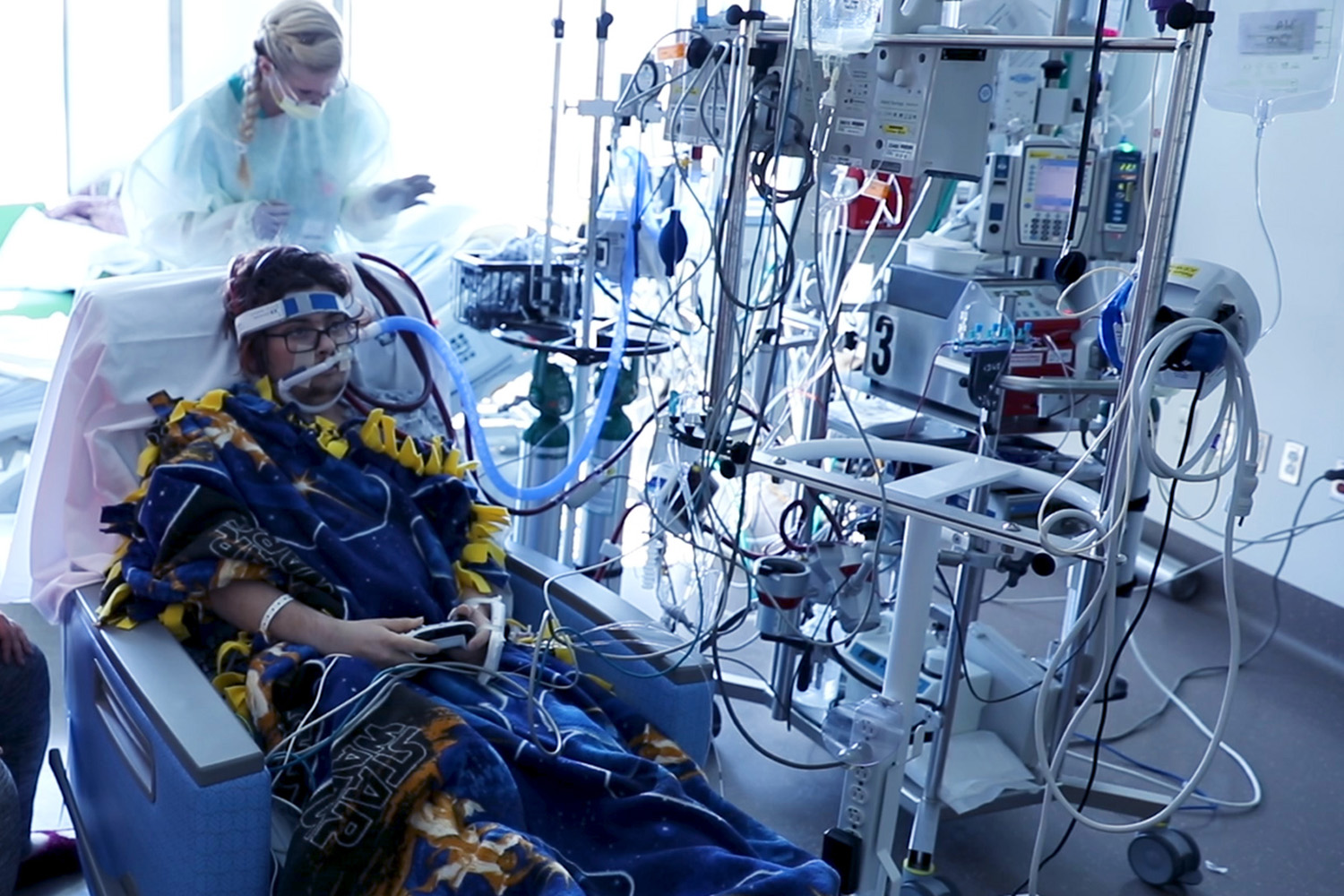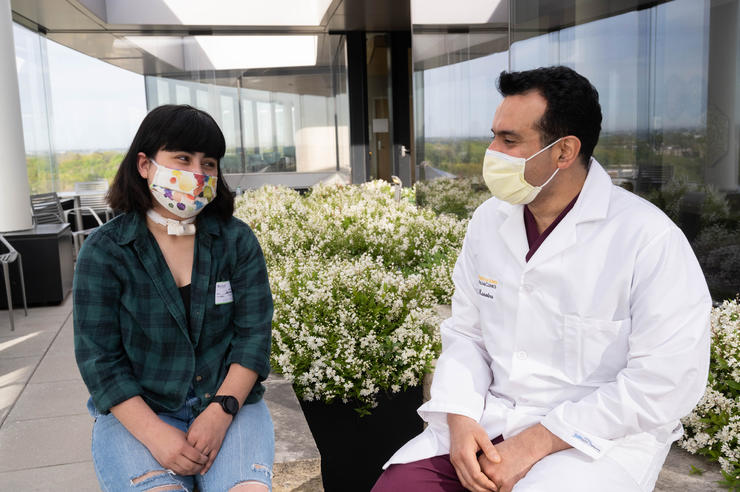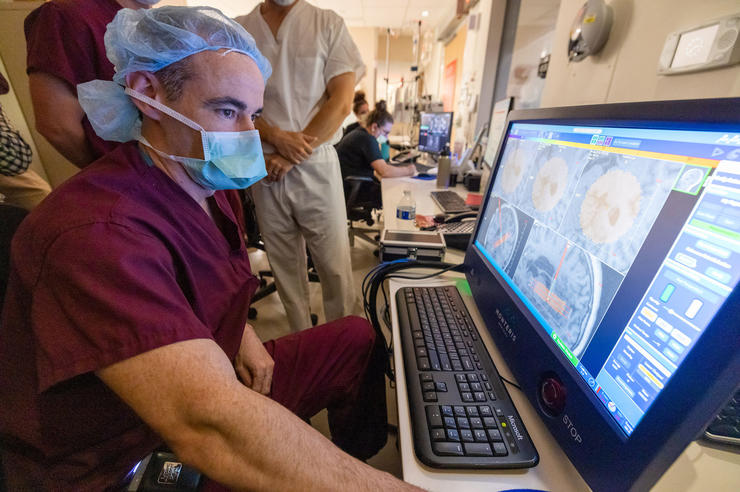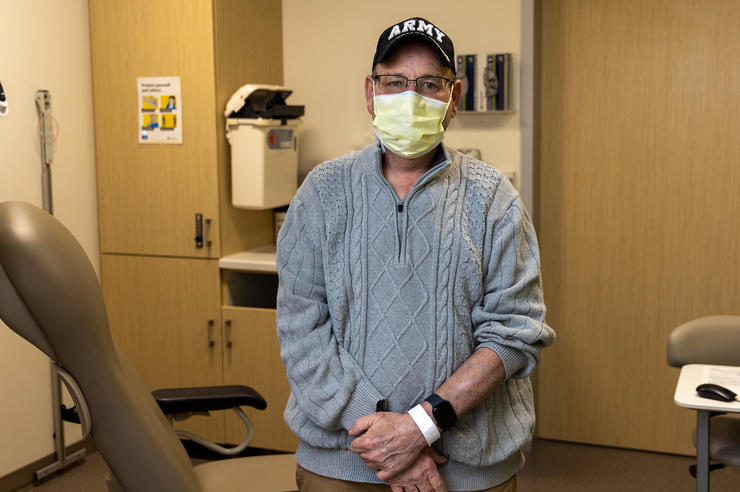ECMO program earns top distinction

Levi Drager spent more than a month in University of Iowa Stead Family Children’s Hospital, recovering from a respiratory infection and pneumonia. His condition was so serious that he was on ECMO, short for extracorporeal membrane oxygenation. Similar to a bypass machine, ECMO is a life-sustaining technology that does the work of the heart and the lungs in critically ill patients with severe respiratory and/or cardiovascular health problems. Drager would become the first pediatric patient at the hospital to take steps while on ECMO—in this photo, he plays a video game after taking steps from the bed to the chair.
The University of Iowa Heart and Vascular Center ECMO (extracorporeal membrane oxygenation) program has earned the Extracorporeal Life Support Organization (ELSO) Award for Excellence in Life Support–Platinum Level.
The platinum-level award is given to ECMO programs that have reached the highest levels of performance, innovation, satisfaction, and quality. The ECMO program at Iowa—a Center of Excellence since 2013 and a gold-level ELSO designation since 2016—now joins roughly 30 other programs around the world with the platinum-level designation.
“To receive the highest level of recognition from ELSO is a true reflection of our ECMO team members and their expertise,” says Lovkesh Arora, MBBS, MD, medical director of the ECMO program at UI Hospitals & Clinics and a clinical associate professor in the Department of Anesthesia. “Our team takes care of some of the sickest patients, and it takes a lot of experience and collaboration to do it well. It’s gratifying to know that we’re recognized as a leader in this life-saving modality.”
Similar to a bypass machine, ECMO is a life-sustaining technology that does the work of the heart and the lungs in critically ill patients with severe respiratory and/or cardiovascular health problems. It supports oxygenation and sometimes blood circulation so that the heart and lungs can rest and heal. ECMO typically serves as a “bridge” therapy to recovery, a heart or lung transplant, or the implantation of a ventricular assist device. Throughout the COVID-19 pandemic, ECMO has proved to be an important treatment for patients with severely damaged lungs.
The UI Heart and Vascular Center ECMO program is the largest and the longest-serving program of its kind in Iowa, with more than two decades of experience and service. It’s one of the few programs in the nation that treats patients of all ages—adult, pediatric, and neonatal. As such, it’s an in-demand resource for critically ill patients across Iowa and the Midwest.
ECMO requires 24/7 bedside monitoring, so the Iowa team—intensive care physicians, ECMO specialists, surgeons, nurses, respiratory therapists, perfusionists, and others—work together to provide ECMO therapy and follow-up care. The Iowa program also is a resource for other medical professionals. The UI Health Care ECMO Program hosts education and training sessions for colleagues from across the country and around the world. They also participate in multi-center research studies that examine aspects of ECMO protocols and outcomes.
“With the rapid growth of ECMO in recent years, we are so fortunate to have one of the few hospital-based training programs in the country,” says Elizabeth Moore, RN, BSN, MBA, associate director of UI Heart and Vascular Center. “It is our next goal to have our training curriculum and course accredited by ELSO to help meet the need for standardized ECMO education.”




